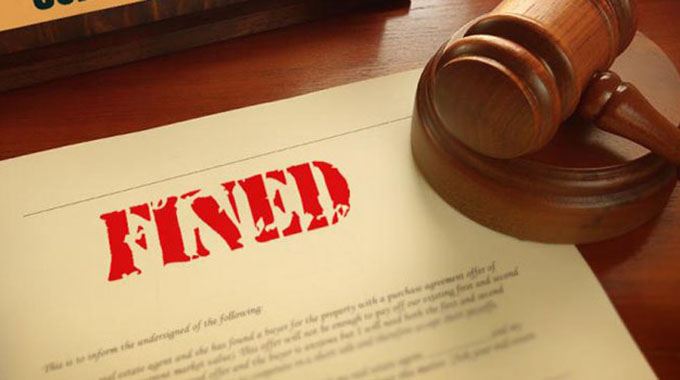Behind harassment of Chinese firms in Zim

Lovemore Chikova-Development Dialogue
There has been a number of cases of late in which some local non-governmental organisations calling themselves the civil society and the opposition have been harassing Chinese firms operating in Zimbabwe, especially those in the mining sector.
These moves should not be viewed in isolation with the broad agenda of stifling the development programme being implemented by the Second Republic.
This is just a manifestation of efforts by western countries, using their local proxies, to ensure that after the imposition of illegal sanctions, Zimbabwe remains isolated in terms of business relations with the world.
The presence of the Chinese businesses in Zimbabwe is often seen as helping the country fight the illegal sanctions imposed by the western countries, hence the aggressive opposition to their presence.
Chinese firms are operating some of the lucrative mines in Zimbabwe and these ventures are expected to help the country extract its natural resources for the benefit of the economic development, and eventually the people.
It is not surprising then that some of the targeted entities include Chinese lithium mining enterprise, Huayou Cobalt, in Mashonaland East province.
Huayou bought Arcadia Mine from Australian-listed Prospect Resources Lithium Zimbabwe (Pvt) Ltd in December last year and has already started operations at the site.
Another major Chinese miner, Sinomine Resource Group, recently launched a US$200 million project to build a plant and expand existing mining operations at its recently acquired Bikita Lithium Mine in Masvingo province.
Zimbabwe recently welcomed another Chinese top miner, the Tsingshan Holdings Group, the world’s top producer of nickel and stainless steel, which is constructing an iron ore mine and a carbon steel plant in Mvuma.
All these, and many other projects being undertaken by Chinese companies in Zimbabwe, have been under attack in a bid to portray them as bad for the country.
Yet, their activities are in line with the development aspirations of the country, where authorities want to exploit opportunities in the mining sector to drive the economic development agenda.
The strategy being employed by the western countries and their allies in opposition entails portraying Chinese businesses as unethical, reckless, without values, criminal and causing harm to communities, environment and workers.
But there is a well-choreographed history behind what is now being seen manifesting as resentment against the Chinese businesses operating in Zimbabwe.
In October 2020, former US Ambassador to Zimbabwe Brian Nichols launched a scathing attack against the Chinese mining companies and the Embassy of the Republic of China.
“The Chinese Embassy in Zimbabwe claims they are “friends without strings” that do not “meddle in the internal affairs” of Zimbabwe,” he wrote in a widely published statement.
“Let us examine this statement. What is meant by internal affairs? Is asking the government of Zimbabwe to honour its own regulations to conduct Environmental Impact Assessments of potential mining operations meddling in internal affairs?
“What about the prevention of the illegal wildlife trade that is run by criminal organisations who slaughter wildlife for sale outside of Zimbabwe and destroy natural habitats — is this meddling in internal affairs?”
In 2018, CCC leader Nelson Chamisa, who was then in the MDC Alliance, told British media that he would expel Chinese investors in case he became the president of Zimbabwe.
His deputy, Tendai Biti, also echoed the same view in an interview with a South Africa news agency where he claimed that; “Zimbabwe does not benefit from Chinese presence”.
In 2011, the European Union had sat the tone by admitting that the Look East Policy adopted by Zimbabwe, which entailed focusing on strengthening relations with China and the increase in investments from the Asian economic giant, was preventing illegal regime change efforts by the bloc.
EU directorate-general for External Polices Luis Nalda was quoted in the EU Parliament publication saying the sanctions were aimed at regime change and to reverse the land reform programme.
The publication was titled: “Impact of sanctions and isolation measures with North Korea, Burma/Myanmar, Iran and Zimbabwe as case studies”.
It read: “EU members have complied with the arms embargo (on Zimbabwe). However, a unilateral EU arms embargo hardly has the potential of limiting the availability of arms to the Zimbabwean regime. This is not only due to the easy accessibility of arms in Africa, but also to China’s growing links with Zimbabwe, which extends to arms trade.”
It seems the plan being employed now is to smear Chinese investments, especially those in the mining sector in Zimbabwe, to discredit them in the eyes of the people, as a way of raising resentment.
This smear campaign mainly involves the use of both the traditional media and social media and inciting communities to demonstrate against the Chinese businesses to put out negative information about these investments.
In this well-plan and deliberate campaign, the Chinese investors are being portrayed as displacing local people from their ancestral lands to pave way for mining.
The fact that China has been the largest source of foreign investment in Zimbabwe for many years has not escaped those opposed to the relations between the two countries.
Chinese companies have contributed to trade with Zimbabwe and China hitting a record high of US$1,882 billion in 2021, recording a year-on-year growth of 34,7 percent.
Top Zimbabwean goods exports to China are tobacco leaves, cotton, ferrochrome and copper, while electromechanical products, computer and communication technology, and textile products are the biggest Chinese exports to Zimbabwe.
These numbers and facts show the mutually beneficial nature of China-Zimbabwe cooperation.
The Chinese investments in Zimbabwe are in the critical areas like mining, electricity generations, airport infrastructure, road infrastructure and in the social sector.
While there has been an attempt to discredit these investments, many Zimbabweans can point to various projects around the country where these companies have done a great job.
These projects include the expansion of Victoria Falls International Airport, the Kariba South Power Station Expansion, the on-going expansion of the Hwange Thermal Power Station, the New Parliament Building set to the officially opened soon, the construction of Gwayi-Shangani Dam and the on-going expansion of Robert Gabriel Mugabe International Airport in Harare and many others.
It is a fact that many of the Chinese companies have been investing in Zimbabwe in accordance with the country’s laws and policies since Zimbabwe’s independence, and most particularly in recent years when the country opened itself to more foreign investments.
As a result, these Chinese miners are seen as making great strides in advancing Zimbabwe’s economy through creating jobs and bringing in new technologies.
More importantly is that the Government sees value for money in the Chinese investments flowing into Zimbabwe.
This is evidenced by President Mnangagwa’s officiating at some of these projects, and outlining what the country expects from such investments.
Speaking Zhejiang Huayou Cobalt acquired Arcadia Lithium Mine, President Mnangagwa said: “This is a positive development in the country’s mining sector, as we will continue to march towards the attainment of a $12 billion mining sector by 2023.
“The decision by Huayou to partner with Prospect Resources is a testament of confidence in my government’s policies and our economy. It also reaffirms the success of our mantra, “Zimbabwe is open for Business” and will leapfrog our country into lithium production and value chains.
“The commitment by Zhejiang Huayou Cobalt to rapidly advance operations at Arcadia is a welcome development.”
President Mnangagwa also demonstrated the Government’s positive attitude towards Chinese miners in Zimbabwe when he officiated at the ground-breaking ceremony of the US$300 million Bikita Minerals Spodumene, a project that will result in increased production of lithium with a projected annual income of US$500 million for the next 10 years.
The game-changing project by Chinese miner, Sinomine Resource Group at Bikita Minerals, is viewed as putting Zimbabwe among the top lithium producing countries.
“It is my expectation that the development of the lithium mining sector in Zimbabwe will lead to the growth of value chain linkages in the manufacturing industry,” said President Mnangagwa during the event.
“This should translate into expanded local production of renewable energy technologies, ceramics, glass, lubricants and polymers, among other products. The investment by Sinomine Resource Group should, thus, not only end in the production of spodumene, but should graduate to the production of battery grade lithium and ultimately lithium ion battery manufacturing entities.”
Zhejiang Huayou, for example, has already started creating employment for locals, with more than 1 000 people expected to be employed by the mine at full production.
About 4,5 million tonnes of ore per annum, translating to roughly 400 000 tonnes of lithium concentrate per annum have the capacity to transform Zimbabwe’s economic status within a short period.
This shows that the Chinese investments are set to contribute to Zimbabwe’s economic development and help it attain the envisaged upper middle income economy by 2030.
Feedback: [email protected]









Comments